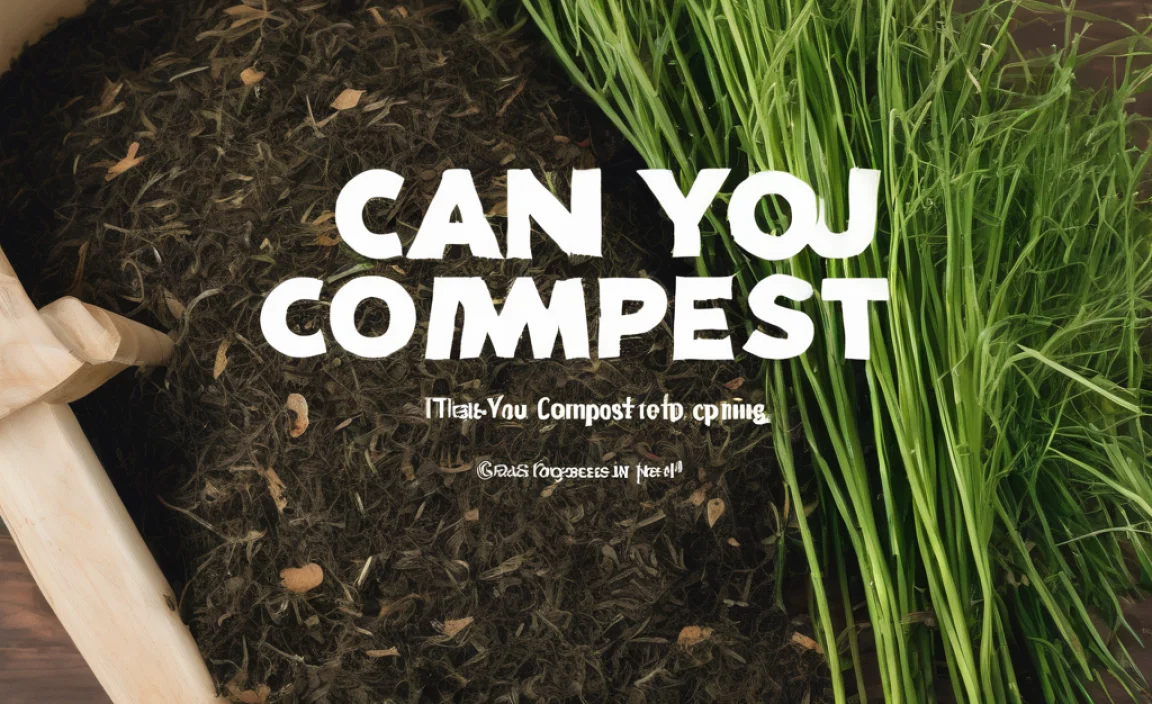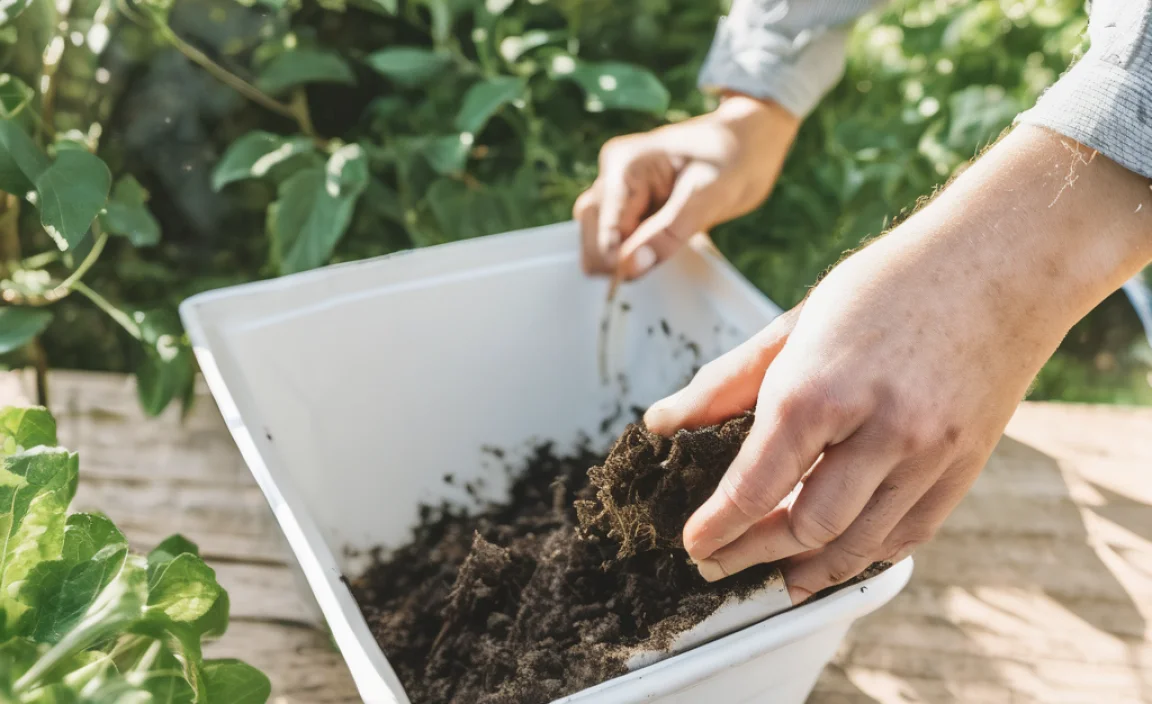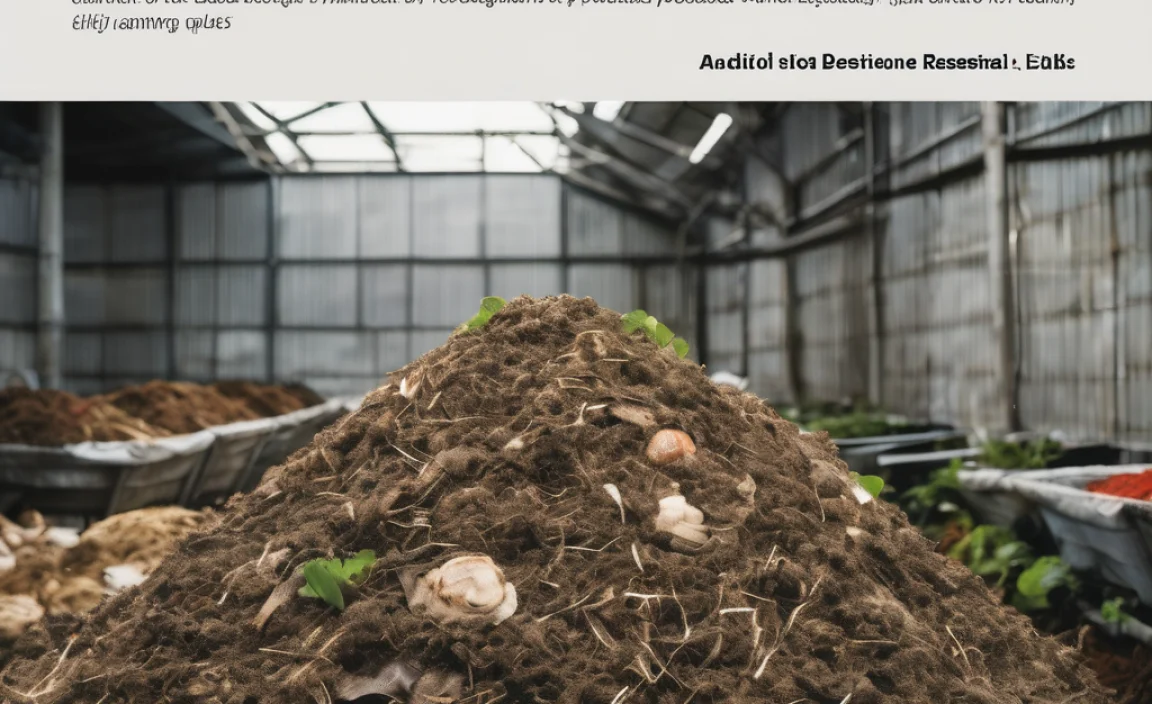Composting is like magic in the garden. You turn scraps into rich soil. But did you know that garden compost temperature matters a lot? It’s not just about what you put in your compost. The temperature can change everything! Let’s explore how it works and why it’s important.
Key Takeaways
- Compost temperatures affect breakdown speed.
- Hot composting kills harmful germs and seeds.
- Check your compost with a thermometer.
- Garden compost temperature should be 135°F-160°F.
- Regular turning keeps compost hot and healthy.
Why Garden Compost Temperature Matters
Temperature is crucial for composting. It affects how fast scraps turn into soil. When compost gets hot, it breaks down quickly. This hot composting also kills weeds and germs. Keeping track of compost temperature helps you know when to turn the pile. Using a compost thermometer is easy and useful. You can find these at most garden stores. Keep your pile between 135°F and 160°F for best results.
- Temperature affects composting speed.
- Hot composting kills bad seeds.
- A thermometer is important for composting.
- Turn compost to keep it warm.
- Check temperature often for best results.
When you monitor temperature, you can adjust your compost. If it’s too cold, add more greens or turn it more. If it’s too hot, add browns or water. Knowing how to control temperature helps make great compost. It’s a simple way to improve your garden soil.
Fun Fact or Stats : Compost can reach 160°F in just a few days!
What Is Hot Composting?
Hot composting speeds up the breakdown of materials. It requires a balance of greens and browns. Greens are things like vegetable scraps and grass clippings. Browns are dried leaves and twigs. When mixed well, they heat up. But why is this heat so important? The heat kills harmful bacteria and weed seeds. This makes the compost safe and clean. It’s like having a tiny oven in your garden!
How Does Temperature Affect Compost?
Temperature controls how quickly composting happens. Warm compost works faster than cold compost. In a hot pile, microorganisms are more active. They eat the scraps and break them down. But too much heat can be bad. It can dry out the pile. That’s why balance is key. Keeping an eye on the temperature helps you make adjustments quickly.
What Tools Measure Compost Temperature?
Using a thermometer helps track compost temperatures. There are special thermometers for composting. They are long and easy to use. Just stick them into the pile. They show you the temperature right away. Why is this important? Because knowing the temperature helps you make the best compost. You can find these tools online or at garden shops. They are affordable and very helpful for composting success.
How to Keep Compost Temperature Ideal
Keeping your compost at the right temperature is important. Without the right temperature, composting slows down. You want your pile to stay between 135°F and 160°F. This range helps break down materials quickly. It also helps kill weed seeds and harmful germs. To keep the temperature ideal, turn your compost often. Add more greens if it cools and more browns if it’s too hot. Water also helps maintain heat by keeping the pile moist but not wet.
- Turn your compost every week.
- Add water if the pile is dry.
- Mix greens and browns well.
- Check temperature with a thermometer.
- Use a tarp to keep heat in.
Maintaining the right temperature may require some practice. But once you get it right, it’s easy. You’ll make rich compost faster. It’s a great feeling to know you’re making something valuable for your garden.
Fun Fact or Stats : The right temperature can double composting speed!
Why Turn Compost Regularly?
Turning compost helps keep the temperature steady. When you turn the pile, you let air in. This air helps microorganisms breathe. It also spreads heat evenly across the pile. But how often should you turn it? About once a week is good. You’ll see the pile steaming, showing it’s hot and active. The more you turn, the faster it composts and stays warm.
What Happens if Compost Gets Too Hot?
If compost gets too hot, it can dry out. Heat can kill important microorganisms. This stops the composting process. How can you fix this? Add water or browns to cool it down. You may also need to turn it more often. Checking temperatures lets you catch overheating early. This helps keep your compost healthy and productive.
Can I Make Compost Without Measuring Temperature?
Yes, you can make compost without a thermometer. But measuring temperature has its benefits. Knowing your compost temperature helps you make adjustments. You can fix problems before they get big. With practice, you’ll know what your pile needs. Monitoring temperatures is a simple way to make better compost faster. It’s a fun and educational step in gardening.
Common Temperature Problems
Compost temperature affects how well your pile works. Sometimes, things can go wrong. The pile might not heat up enough. This can slow down composting. Or it can get too hot and dry. Both problems need quick fixes. Without fixing them, compost may not form properly. So, what can you do? Watching the temperature helps you fix issues quickly. You can adjust ingredients or turning schedule.
- Not enough greens slows heating.
- Too many browns can cool the pile.
- Turning too little affects heat.
- Dry piles heat less effectively.
- Overheating dries out compost.
Understanding common problems helps you avoid them. Knowing what causes issues lets you prevent them in the future. This ensures your compost pile remains active and productive all the time.
Fun Fact or Stats : Compost can cool or overheat due to weather!
How Does Weather Affect Compost?
Weather plays a role in compost temperature. In cold weather, your pile might cool down. In hot weather, it might overheat. So, what can you do? In winter, use a tarp to trap heat. In summer, provide shade and water. Each season affects compost differently. Knowing how weather affects your pile helps make good compost year-round. It’s like having a seasoned gardener guide you!
Why Isn’t My Compost Heating Up?
A cold compost pile is a common problem. It usually means not enough greens or moisture. Without these, microorganisms slow down. Try adding fresh kitchen scraps. Mix in some grass clippings. Why aren’t these working? Mix them with dry leaves and balance the pile. A thermometer confirms these changes work.
What Are Signs of Overheating?
Too much heat is another issue. Your compost might dry out. It may feel crumbly or not reducing in size. How to fix it? Add water or extra browns like leaves. Reduce turning to let it cool. This balances the heat. You’ll soon see steam, which indicates a healthy, hot pile. It’s like tending a tiny fire in your garden!
Conclusion
Keeping the right garden compost temperature helps make great compost. It speeds up the process and eliminates problems. Use a thermometer to track it. Turn your pile often for even heat. Adjust ingredients to keep it balanced. You’ll end up with rich soil that helps plants grow. Happy composting!
FAQs
Question: Why is garden compost temperature important?
Answer: Temperature affects how fast compost materials break down. It also kills harmful germs and weed seeds. Keeping the right temperature helps you make rich, healthy compost faster.
Question: How can I check my compost’s temperature?
Answer: Use a compost thermometer to check the temperature. Insert it into the pile. It will show you the current temperature. This tool helps you manage your compost pile better by knowing when to turn or adjust it.
Question: What should the ideal compost temperature be?
Answer: The ideal compost temperature is between 135°F and 160°F. This range breaks down materials quickly and kills harmful germs and seeds. Monitoring the temperature helps maintain this ideal range.
Question: How often should I turn my compost pile?
Answer: Turn your compost pile about once a week. This helps keep the temperature even and lets air circulate. Regular turning speeds up the composting process and keeps the pile healthy and active.
Question: Can I compost without measuring the temperature?
Answer: Yes, it’s possible to compost without measuring temperature. But using a thermometer helps adjust your pile more effectively. It lets you know when to make changes to keep composting fast and healthy.
Question: Why isn’t my compost pile heating up?
Answer: If your compost pile isn’t heating up, it might lack greens or moisture. Try adding fresh kitchen scraps or grass clippings. Mixing well and checking moisture helps raise the temperature.




